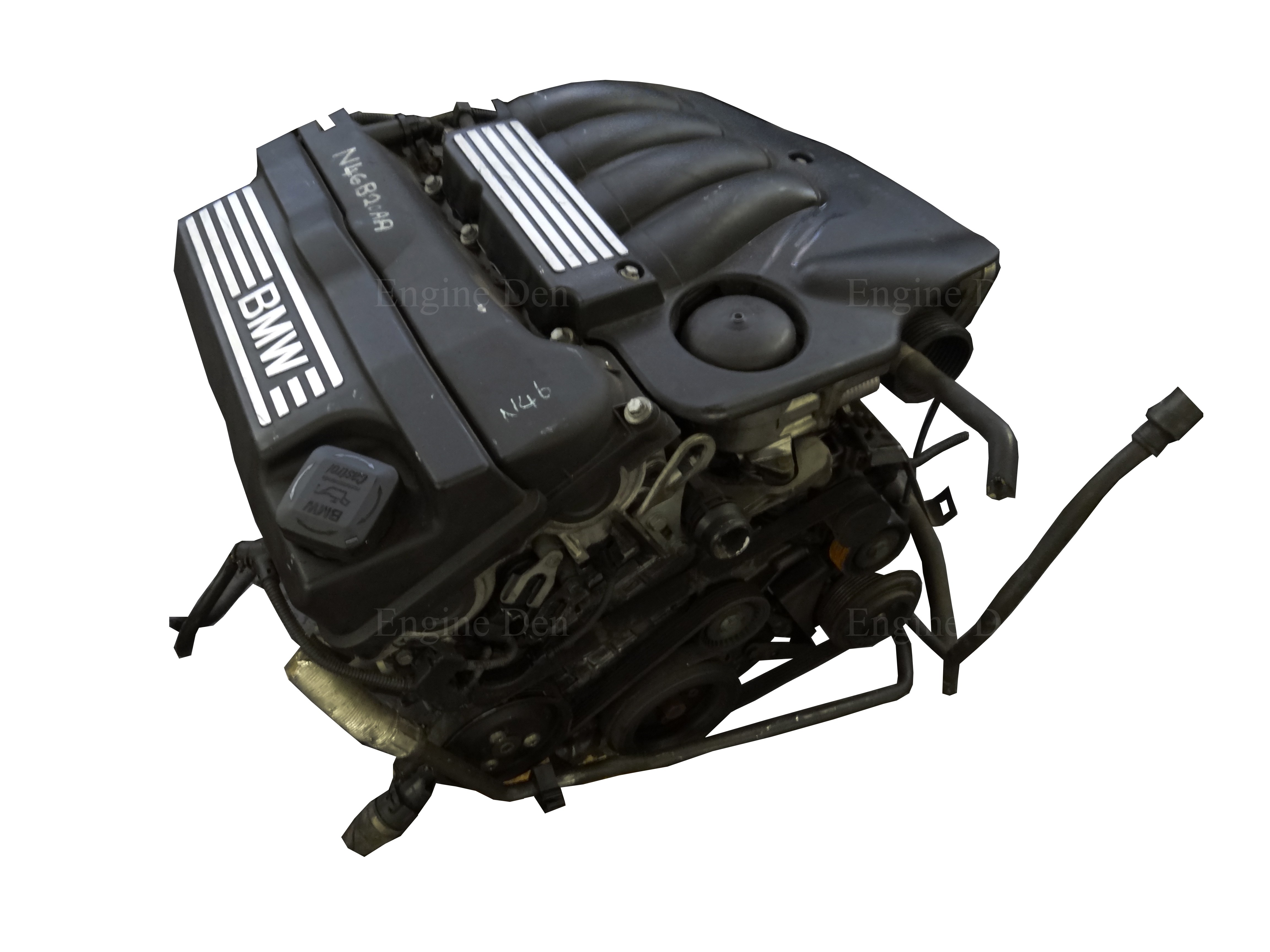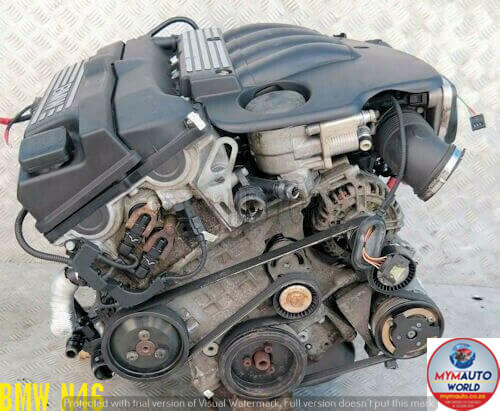Common Concerns and Maintenance Tips for the N46 Engine
Recognizing Engine Specifications and Qualities: A Trick Variable in Your Purchasing Decision
Comprehending engine requirements and functions is basic for any type of potential car customer, as these metrics act as a home window into the efficiency and efficiency of a vehicle. Crucial factors such as gas, horsepower, and torque efficiency not only affect your driving experience but additionally figure out lasting possession costs. By examining these specifications closely, one can reveal the subtleties that set apart designs and align them with personal requirements. Nevertheless, the implications of choosing the right engine extend past mere numbersâEUR" what may be the most critical element to think about?
Value of Engine Specifications

Understanding these requirements is important for consumers and professionals alike, as they give understandings into fuel performance, power output, and general reliability. A higher horse power ranking may suggest a much more effective engine, suitable for jobs calling for considerable torque, while fuel performance metrics inform customers about long-lasting functional costs.
Additionally, engine requirements assist in contrasts in between different designs and brand names, enabling prospective purchasers to make informed choices based upon their particular needs and preferences. They also play an important role in upkeep and repair service contexts, as expertise of these specifications can help technicians in identifying problems accurately and efficiently. In recap, engine requirements are essential for any person looking to evaluate efficiency, boost understanding, and guarantee optimum engine use in both individual and professional abilities.
Key Engine Metrics Explained
When reviewing engine efficiency, several key metrics enter play, each offering valuable insights right into exactly how an engine runs. One important statistics is horsepower, which shows the engine's capability to execute work over time - n46 engine. Higher horsepower normally equates to far better velocity and higher full throttle
Torque is an additional crucial statistics, representing the rotational pressure produced by the engine. It is specifically vital for jobs calling for significant pulling power, such as towing or transporting heavy tons. The powerband, or the variety of engine RPMs where the engine runs most successfully, also plays a vital role in performance attributes.
Engine variation, measured in liters or cubic centimeters, refers to the overall volume of all the cylinders in the engine. n46 engine. Larger displacement commonly correlates with more power however can also affect engine weight and size. Another essential variable is the number of cylinders, as it can affect smoothness, power distribution, and gas performance
Finally, the compression proportion, which contrasts the cyndrical tube's volume at the base and top of the stroke, impacts both power potential and engine effectiveness, affecting the overall performance and responsiveness of the engine. Understanding these metrics aids in making enlightened buying choices.
Gas Performance Factors To Consider
Examining gas performance is crucial for both economic and environmental factors to consider in go right here vehicle design. Fuel performance straight affects operating expense, as automobiles that take in much less gas convert to lower expenses over time. This facet is particularly considerable in a landscape where gas costs fluctuate and customers look for to optimize their financial investment.
Moreover, fuel-efficient vehicles contribute to lowered greenhouse gas emissions, dealing with the growing concern over environment modification. As ecological guidelines come to be stricter, car manufacturers are significantly concentrating on maximizing engine performance to satisfy these standards while still attracting consumers who prioritize sustainability.
When assessing fuel performance, prospective buyers ought to take into consideration several metrics, including miles per gallon (MPG) rankings, engine variation, and the sort of fuel made use of. Automobiles outfitted with smaller sized, turbocharged engines or hybrid systems typically offer premium gas economic climate without compromising efficiency (n46 engine). Furthermore, understanding the automobile's weight and the rules of aerodynamics can supply understandings right into its total efficiency
Ultimately, making notified choices concerning fuel efficiency not just boosts individual financial health yet additionally supports wider ecological objectives. As the automobile market evolves, prioritizing fuel-efficient choices will certainly stay an essential aspect in accountable lorry possession.
Advanced Engine Technologies
Countless advancements in engine innovations are improving the vehicle landscape, enhancing both efficiency and effectiveness. One famous advancement is the combination of turbocharging, which permits smaller engines to generate power equivalent to bigger equivalents, substantially improving gas economy without giving up performance. Combined with straight gas injection, this modern technology enhances the burning process, resulting in better atomization and a lot more effective fuel usage.
An additional substantial development is the application of variable valve timing (VVT), which changes the timing of the opening and closing of engine shutoffs. This optimization allows for boosted efficiency throughout a variety of engine rates, supplying far better torque and fuel performance.
Furthermore, the rise of hybrid and electric powertrains represents a standard shift in engine technology. These systems make use of electric motors combined with conventional internal burning engines, reducing exhausts and improving total effectiveness. Furthermore, advancements in engine monitoring systems, including advanced software application formulas, facilitate real-time surveillance and changes, better maximizing efficiency and fuel usage.
As these technologies remain to evolve, they assure an exciting future for automotive powertrains, incorporating the most effective of performance, effectiveness, and environmental stewardship.
Matching Engines to Your Needs
Selecting the ideal engine for your car is necessary to fulfill both your performance assumptions and functional needs. Different engines offer numerous benefits, making it crucial to straighten your option with your driving requirements. If you prioritize speed and acceleration, a high-performance engine with a turbocharger might be excellent. Conversely, if gas efficiency is your major concern, take into consideration engines with smaller displacements or crossbreed alternatives that optimize mileage.
Additionally, take into consideration the kind of driving you engage in regularly. For off-road enthusiasts, durable engines with boosted torque will offer much better grip and security on uneven terrains. Urban commuters may gain from engines developed for efficiency and reduced discharges, which can likewise lower costs in the future.
Furthermore, believe about the repair and maintenance elements of your engine Bonuses option. Some engines may require specific that site understanding for solution, which can affect ownership experience. Inevitably, comprehending your particular needsâEUR" from efficiency and efficiency to maintenanceâEUR" will direct you in picking an engine that not just enhances your driving experience but additionally straightens with your lifestyle and spending plan.
Conclusion
In final thought, a comprehensive understanding of engine specs and functions is necessary for making educated car buying decisions. Advanced innovations better enhance engine capacities, allowing consumers to match engine kinds to particular demands effectively.
In recap, engine specifications are essential for anyone looking to examine efficiency, improve understanding, and ensure optimal engine application in both personal and specialist capacities.
When assessing engine performance, numerous crucial metrics come into play, each offering beneficial understandings right into how an engine operates. The powerband, or the array of engine RPMs where the engine runs most efficiently, likewise plays a crucial function in efficiency qualities.
